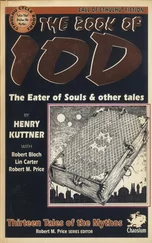Charles Henry Mackintosh - Notes on the Book of Deuteronomy, Volume I
Здесь есть возможность читать онлайн «Charles Henry Mackintosh - Notes on the Book of Deuteronomy, Volume I» — ознакомительный отрывок электронной книги совершенно бесплатно, а после прочтения отрывка купить полную версию. В некоторых случаях можно слушать аудио, скачать через торрент в формате fb2 и присутствует краткое содержание. Жанр: foreign_prose, foreign_antique, на английском языке. Описание произведения, (предисловие) а так же отзывы посетителей доступны на портале библиотеки ЛибКат.
- Название:Notes on the Book of Deuteronomy, Volume I
- Автор:
- Жанр:
- Год:неизвестен
- ISBN:нет данных
- Рейтинг книги:4 / 5. Голосов: 1
-
Избранное:Добавить в избранное
- Отзывы:
-
Ваша оценка:
- 80
- 1
- 2
- 3
- 4
- 5
Notes on the Book of Deuteronomy, Volume I: краткое содержание, описание и аннотация
Предлагаем к чтению аннотацию, описание, краткое содержание или предисловие (зависит от того, что написал сам автор книги «Notes on the Book of Deuteronomy, Volume I»). Если вы не нашли необходимую информацию о книге — напишите в комментариях, мы постараемся отыскать её.
Notes on the Book of Deuteronomy, Volume I — читать онлайн ознакомительный отрывок
Ниже представлен текст книги, разбитый по страницам. Система сохранения места последней прочитанной страницы, позволяет с удобством читать онлайн бесплатно книгу «Notes on the Book of Deuteronomy, Volume I», без необходимости каждый раз заново искать на чём Вы остановились. Поставьте закладку, и сможете в любой момент перейти на страницу, на которой закончили чтение.
Интервал:
Закладка:
We shall now proceed with our chapter; and in so doing, we would call the reader's attention to verse 2. It is certainly a very remarkable parenthesis. "(There are eleven days' journey from Horeb, by the way of Mount Seir, unto Kadesh-barnea.)" Eleven days! and yet it took them forty years! How was this? Alas! we need not travel far for the answer. It is only too like ourselves. How slowly we get over the ground! What windings and turnings! How often we have to go back and travel over the same ground again and again! We are slow travelers, because we are slow learners. It may be we feel disposed to marvel how Israel could have taken forty years to accomplish a journey of eleven days; but we may, with much greater reason, marvel at ourselves. We, like them, are kept back by our unbelief and slowness of heart; but there is far less excuse for us than for them, inasmuch as our privileges are so very much higher.
Some of us have much reason to be ashamed of the time we spend over our lessons. The words of the blessed apostle do but too forcibly apply to us—"For when for the time ye ought to be teachers, ye have need that one teach you again which be the first principles of the oracles of God; and are become such as have need of milk, and not of strong meat." Our God is a faithful and wise as well as a gracious and patient Teacher. He will not permit us to pass cursorily over our lessons. Sometimes, perhaps, we think we have mastered a lesson, and we attempt to move on to another; but our wise Teacher knows better, and He sees the need of deeper ploughing. He will not have us mere theorists or smatterers: He will keep us, if need be, year after year at our scales until we learn to sing.
Now, while it is very humbling to us to be so slow in learning, it is very gracious of Him to take such pains with us, in order to make us sure. We have to bless Him for His mode of teaching as for all beside—for the wonderful patience with which He sits down with us over the same lesson again and again, in order that we may learn it thoroughly. 3 3 The journey of Israel from Horeb to Kadesh-barnea illustrates but too forcibly the history of many souls in the matter of finding peace. Many of the Lord's beloved people go on for years, doubting and fearing, never knowing the blessedness of the liberty wherewith Christ makes His people free. It is most distressing, to any one who really cares for souls, to see the sad condition in which some are kept all their days, through legality, bad teaching, false manuals of devotion, and such like. It is a rare thing now-a-days to find in christendom a soul fully established in the peace of the gospel. It is considered a good thing—a sign of humility—to be always doubting. Confidence is looked upon as presumption. In short, things are turned completely upside down. The gospel is not known: souls are under law instead of under grace,—they are kept at a distance instead of being taught to draw nigh. Much of the religion of the day is a deplorable mixture of Christ and self, law and grace, faith and works. Souls are kept in a perfect muddle all their days. Surely these things demand the grave consideration of all who occupy the responsible place of teachers and preachers in the professing church. There is a solemn day approaching, when all such will be called to render an account of their ministry.
"And it came to pass in the fortieth year, in the eleventh month, on the first day of the month, that Moses spake unto the children of Israel, according unto all that the Lord had given him in commandment unto them." (Ver. 3.) These few words contain a volume of weighty instruction for every servant of God—for all who are called to minister in the Word and doctrine. Moses gave the people just what he himself had received from God—nothing more, nothing less. He brought them into direct contact with the living Word of Jehovah. This is the grand principle of ministry at all times. Nothing else is of any real value. The Word of God is the only thing that will stand. There is divine power and authority in it. All mere human teaching, however interesting—however attractive at the time, will pass away and leave the soul without any foundation to rest upon.
Hence it should be the earnest, jealous care of all who minister in the assembly of God, to preach the Word in all its purity, in all its simplicity; to give it to the people as they get it from God; to bring them face to face with the veritable language of holy Scripture. Thus will their ministry tell, with living power, on the hearts and consciences of their hearers. It will link the soul with God Himself, by means of the Word, and impart a depth and solidity which no human teaching can ever produce.
Look at the blessed apostle Paul. Hear him express himself on this weighty subject.—"And I, brethren, when I came to you, came not with excellency of speech or of wisdom, declaring unto you the testimony of God. For I determined not to know any thing among you, save Jesus Christ, and Him crucified. And I was with you in weakness, and in fear, and in much trembling. And my speech and my preaching was not with enticing words of man's wisdom, but in demonstration of the Spirit and of power." What was the object of all this fear and trembling? "That your faith should not stand in the wisdom of men, but in the power of God." (1 Cor. ii. 1-5.)
This true-hearted faithful servant of Christ sought only to bring the souls of his hearers into direct personal contact with God Himself. He sought not to link them with Paul. "Who then is Paul, and who is Apollos, but ministers by whom ye believed ?" All false ministry has for its object the attaching of souls to itself. Thus the minister is exalted, God is shut out, and the soul left without any divine foundation to rest upon. True ministry, on the contrary, as seen in Paul and Moses, has for its blessed object the attaching of the soul to God. Thus the minister gets his true place—simply an instrument, God is exalted, and the soul established on a sure foundation which can never be moved.
But let us hear a little more from our apostle on this most weighty subject. "Moreover, brethren, I declare unto you the gospel which I preached unto you, which also ye have received, and wherein ye stand; by which also ye are saved, if ye keep in memory what I preached unto you, unless ye have believed in vain. For I delivered unto you first of all that which I also received "—nothing more, nothing less, nothing different—"how that Christ died for our sins according to the Scriptures ; and that He was buried, and that He rose again the third day according to the Scriptures ."
This is uncommonly fine. It demands the serious consideration of all who would be true and effective ministers of Christ. The apostle was careful to allow the pure stream to flow down from its living source—the heart of God, into the souls of the Corinthians. He felt that nothing else was of any value. If he had sought to link them on to himself, he would have sadly dishonored his Master, done them a grievous wrong, and he himself would most assuredly suffer loss in the day of Christ.
But no; Paul knew better. He would not, for worlds, lead any to build upon himself. Hear what he says to his much-loved Thessalonians.—"For this cause also thank we God without ceasing, because, when ye received the Word of God which ye heard of us, ye received it not as the word of men , but as it is in truth, the Word of God , which effectually worketh also in you that believe." (1 Thess. ii. 13.)
We feel solemnly responsible to commend this grave and important point to the serious consideration of the Church of God. If all the professed ministers of Christ were to follow the example of Moses and Paul, in reference to the matter now before us, we should witness a very different condition of things in the professing church. But the plain and serious fact is, that the Church of God, like Israel of old, has wholly departed from the authority of His Word. Go where you will, and you find things done and taught which have no foundation in Scripture. Things are not only tolerated but sanctioned and stoutly defended which are in direct opposition to the mind of Christ. If you ask for the divine authority for this, that, and the other institution or practice, you will be told that Christ has not given us directions as to matters of church government; that in all questions of ecclesiastical polity, clerical orders, and liturgical services, He has left us free to act according to our consciences, judgment, or religious feelings; that it is simply absurd to demand a "Thus saith the Lord" for all the details connected with our religious institutions: there is a broad margin left to be filled up according to our national customs and our peculiar habits of thought. It is considered that professing Christians are left perfectly free to form themselves into so-called churches, to choose their own form of government, to make their own arrangements, and to appoint their own office-bearers.
Читать дальшеИнтервал:
Закладка:
Похожие книги на «Notes on the Book of Deuteronomy, Volume I»
Представляем Вашему вниманию похожие книги на «Notes on the Book of Deuteronomy, Volume I» списком для выбора. Мы отобрали схожую по названию и смыслу литературу в надежде предоставить читателям больше вариантов отыскать новые, интересные, ещё непрочитанные произведения.
Обсуждение, отзывы о книге «Notes on the Book of Deuteronomy, Volume I» и просто собственные мнения читателей. Оставьте ваши комментарии, напишите, что Вы думаете о произведении, его смысле или главных героях. Укажите что конкретно понравилось, а что нет, и почему Вы так считаете.












